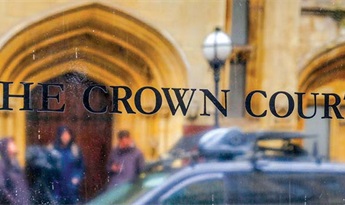
The House of Commons Justice Committee report ‘Open justice: court reporting in the digital age’, published 1 November, seemed to confirm that court reporters were rapidly becoming marked out for ‘endangered species’ status. In written evidence to the committee, Dr Richard Jones, an academic from the University of Huddersfield, noted that court reporters ‘will often go weeks or even months’ without seeing another journalist in court.
The Justice Committee report argued that the dramatic decline in newspapers’ coverage of courts was creating a ‘democratic deficit’, as well as having a negative impact on ‘open justice’. It has been a long and slow demise. The Guardian’s veteran investigative journalist Nick Davies in his 2009 abook Flat Earth News reflected that one was ‘as likely to see a zebra as a reporter’ in a courtroom outside of the Royal Courts of Justice or the Old Bailey.
Accountability absent
‘Open justice’ is a slippery phrase deployed by lawyers to describe its absence (see also ‘access to justice’). In the new report, Dr Judith Townend, a senior lecturer in media and information law from the University of Sussex, helpfully reminds MPs that its key function is as ‘an accountability check on the functioning of the justice system’.
The need for accountability is greater than ever. This is a system that is failing or, to use the Secret Barrister’s word, ‘broken’. Unfortunately, years of neglect and underfunding have happened at the same time as the retreat of the media from our courts as a result of massive industry challenges—notably the collapse in traditional sources of revenue (circulation and advertising) and increasing online competition.
If parliamentary business was conducted daily ‘without a single journalist being there to report on it, with no sessions being recorded or broadcast live’, the news agency PA Media told MPs that it would be ‘obvious to most that there would be something very wrong with that’. ‘However,’ PA continued, ‘there is much going on in our courts that we are not seeing or hearing about and this is largely unnoticed by the wider public’.
Sir Bob Neill MP, the Justice Committee’s chair, reflecting on the ‘transformation in the media landscape’ since the turn of the century, said: ‘We no longer live in a world where national and local newspapers act as the eyes and ears of the public in the courtroom. However, digital media has so far failed to fill the gap in court reporting left by the decline in physical media’. The MPs calls for the ‘re-establishment of a courts’ inspectorate’ to help identify ‘wider issues’ within the justice system ‘not well covered by the media’.
Vital checks
This report follows the 2019 Cairncross Review, commissioned by the Department for Digital, Culture, Media and Sport, which looked at the sustainability of quality journalism in this new era. It noted that the erosion of the revenues of newspapers had led to a ‘particularly stark’ decline in the coverage of courts. That review quoted research by the academic Dr Brian Thornton, which appeared in the Justice Gap, finding that in the four years up to 2016, court reporting had dropped by 30% in the national press and 40% in the regionals.
We need engaged and critical journalists present in our courts who can provide a meaningful check in our justice system. In September, I delivered a paper to the Nexus Conference on Wrongful Convictions (bit.ly/3X0eO3q) on the media’s disengagement over the last 30 years. I charted the waning of interest from a high watermark of public service broadcasting in the 1980s—eg the BBC’s landmark investigative programme Rough Justice was responsible for overturning 18 convictions between 1980 to 2007—to the seeming indifference of today’s press.
In 1999, the late brilliant journalist Bob Woffinden successfully challenged a Home Office ban on journalists visiting prisoners. Woffinden provided the court with details of more than 60 cases over the previous decade where journalists played ‘a substantial role in identifying miscarriages of justice which led to the quashing of the convictions’. Woffinden once quipped that the best chance a wrongly convicted prisoner had of overturning his conviction was ‘to persuade Ludovic Kennedy to write a book’.
Podcast justice?
This year, Adnan Syed, whose case featured in the ground-breaking American podcast Serial, had his conviction overturned. On BBC Radio 4’s Today programme, presenter Justin Webb in a discussion about the case, asserted that podcasts were now ‘the place to go’ for innocent people wrongly convicted. There was ‘absolutely no question about that’, he added.
Really? I am not convinced. As I have noted previously in NLJ, the creation of the first ever miscarriage of justice watchdog the Criminal Cases Review Commission (CCRC) was due to a generation of journalists who exposed the rot of a justice system. It does not reflect well on today’s media that it has been so incurious as to the undermining of the CCRC and has done so little to highlight systemic issues (eg the Court of Appeal shutting down joint enterprise appeals following the landmark 2016 Supreme Court ruling of R v Jogee [2016] UKSC 8).
The Justice Committee report has useful insights. I welcome MPs highlighting the exorbitant cost of court transcripts, which has proved a barrier for many claiming to be wrongly convicted. MPs also shine a spotlight on the lack of accountability and transparency of the single justice procedure, a fast-track process for non-imprisonable offences.
The degree to which our justice system has ‘open justice’ is challenged by, not only the many problems of our media, but also its institutional defensiveness.
Dr Jon Robins is an NLJ columnist, a special adviser to the All-Party Parliamentary Group on Miscarriages of Justice & lecturer in criminology at Brighton University.










